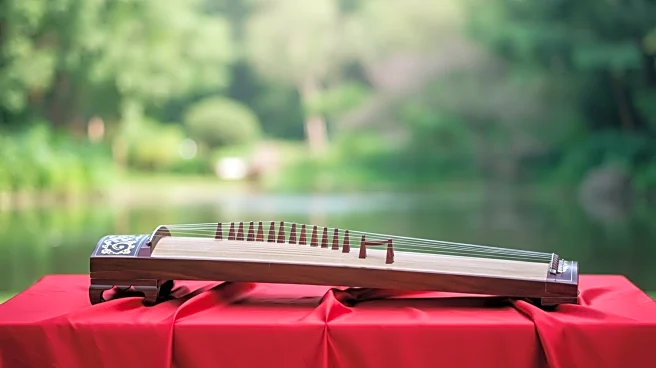What's Happening?
The Cambridge Chinese Music and Culture Festival is underway, celebrating traditional Chinese music with performances from over 20 global artists. The festival, organized by Shi Yang Mortimer, features instruments like the guqin, guzheng, and pipa, and includes cultural activities such as dragon dances, calligraphy workshops, and tea ceremonies. The event is hosted by the Cambridge Chinese Community Centre, the Cambridge Qin Society, and the Cambridge University Chinese Orchestra Society, running until August 22. The festival aims to bridge Eastern and Western cultures through music, with performances held at historic venues like Trinity College.
Why It's Important?
The festival highlights the cultural exchange between China and the UK, fostering understanding and appreciation of Chinese traditions. It serves as a platform for cultural diplomacy, enhancing bilateral relations through shared artistic experiences. The involvement of international performers underscores the global interest in Chinese culture, potentially boosting tourism and local economy. Additionally, the festival provides a space for cultural education, allowing attendees to engage with Chinese art forms and traditions, promoting diversity and inclusivity within the community.
What's Next?
The festival will continue with various events, including the Chinese Music and Culture Day at Storey's Field Centre, featuring demonstrations of traditional Chinese arts. Organizers hope to expand the festival's reach and impact, potentially attracting more international participants in future editions. The success of this year's festival could lead to increased collaboration between cultural institutions in Cambridge and China, fostering long-term cultural ties and exchanges.
Beyond the Headlines
The festival's emphasis on cultural exchange raises questions about the role of arts in diplomacy and international relations. It highlights the potential for music and culture to transcend political and social barriers, fostering mutual understanding. The event also reflects broader trends in cultural globalization, where local communities engage with diverse traditions, enriching their cultural landscape.











